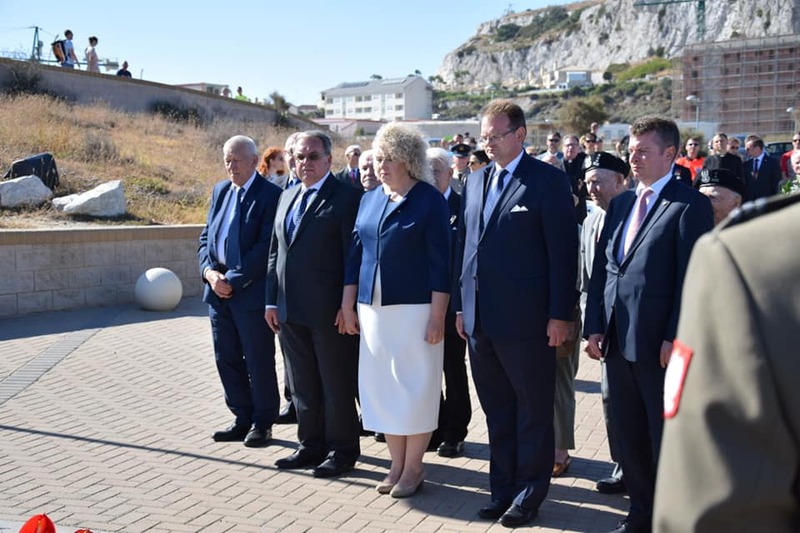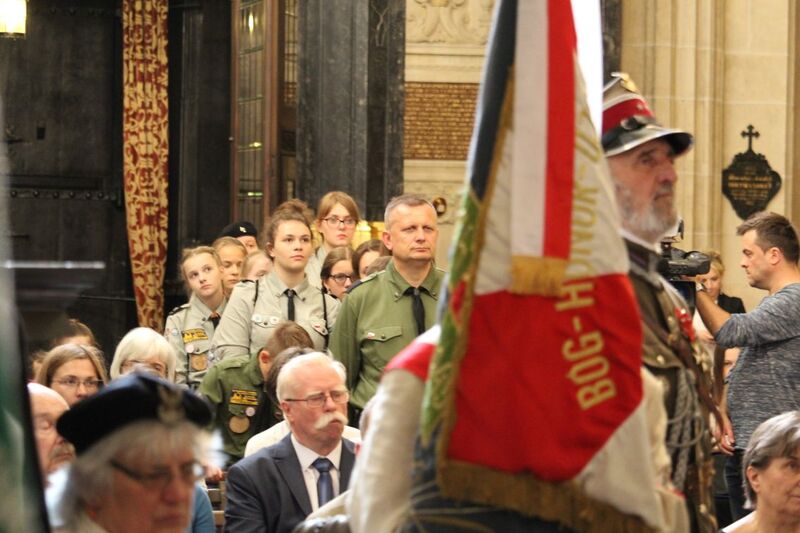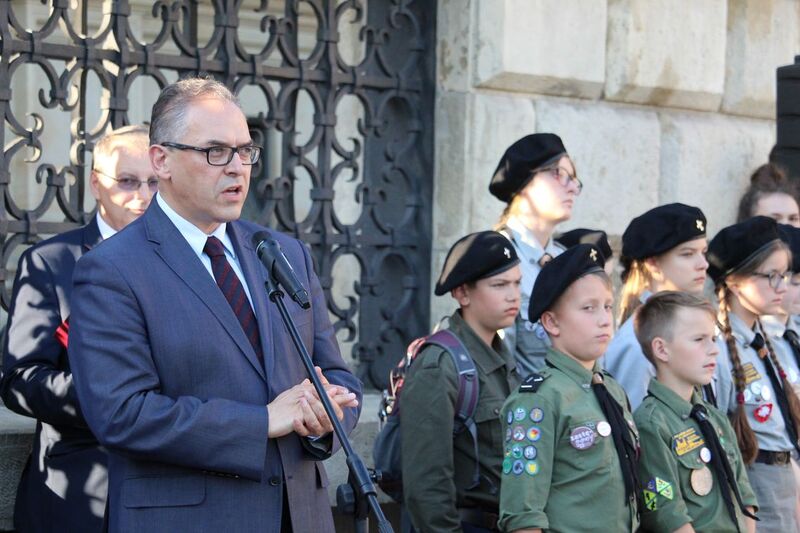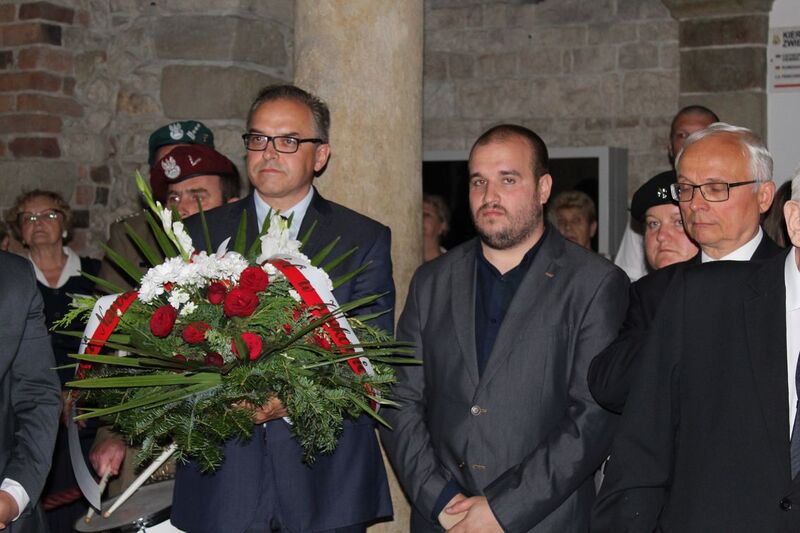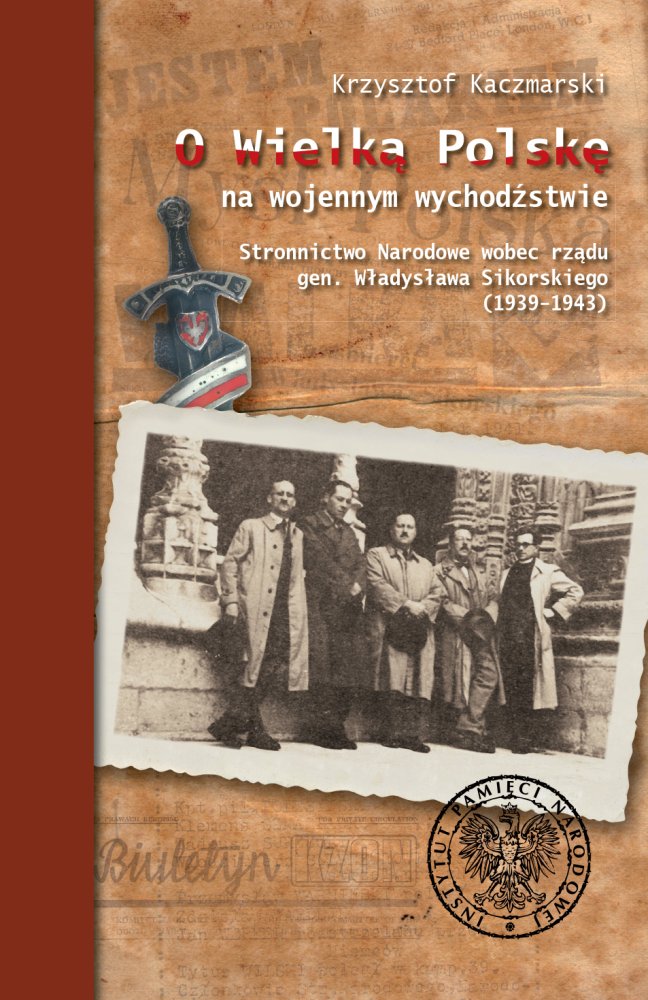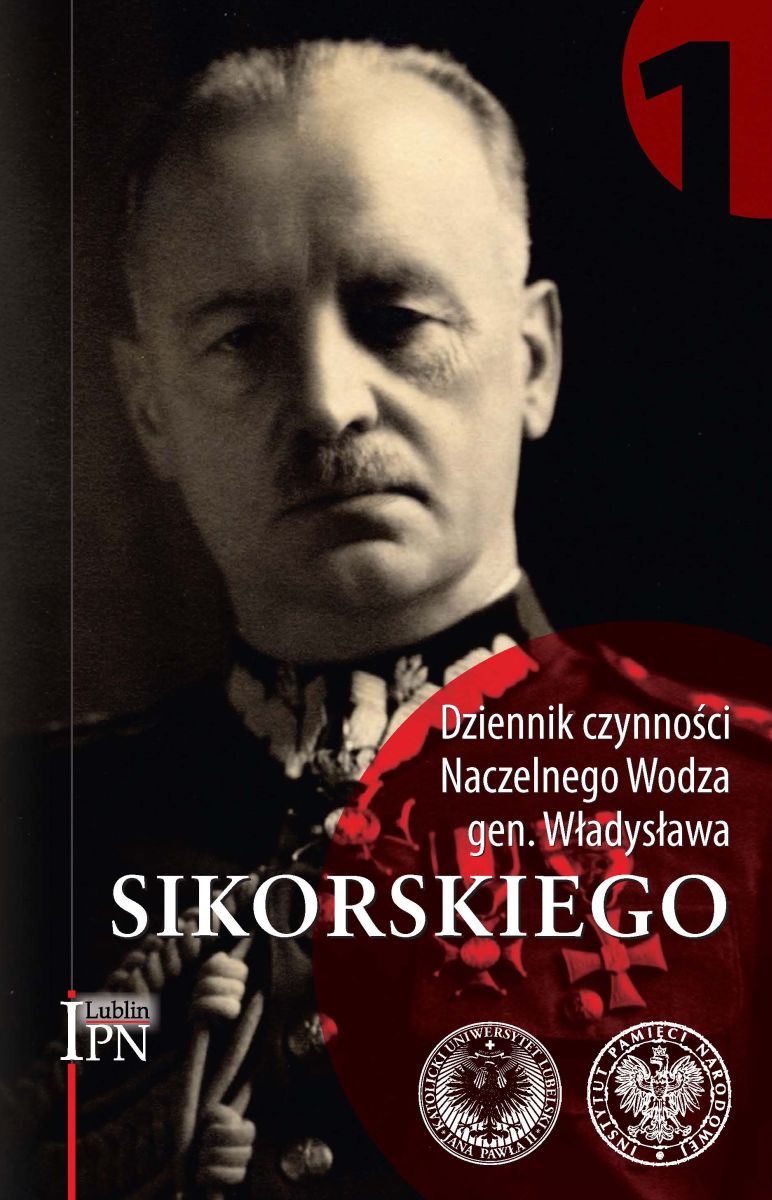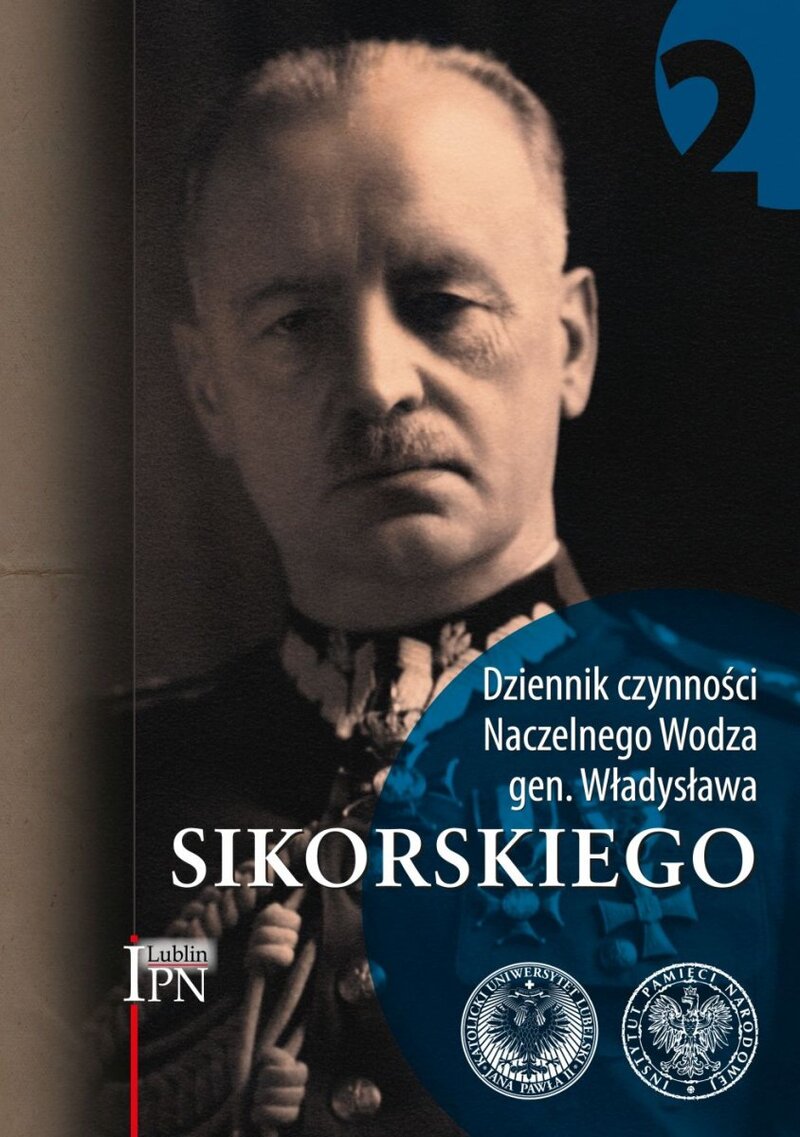On 4 July 2018, exactly 75 years passed from the tragic death of Lieutenant General Władysław Sikorski in a plane crash – the co-author of the victory over the Red Army in 1920, the Prime Minister of the Second Polish Republic, the Supreme Commander of the Polish Armed Forces during World War II and the Head of the Polish Government in Exile.
The anniversary celebrations, organized by the Office for Veterans and Victims of Oppression, began on 2 July this year. The ceremony of laying flowers in front of the monument of General Sikorski in London - the city hosting the Government of the Republic of Poland in exile in 1940-1990.
The Deputy President of the Institute of National Remembrance, Jan Baster took part in the celebrations.
The main event took place on 4 July in Gibraltar. The Polish delegation laid flowers on the graves of the people killed in the Liberator II AL523 crash at North Front Cemetery, took part in the Holy Mass in the Cathedral of the Blessed Virgin Mary, and later paid homage to the General and those accompanying him during the tragic flight during the main ceremony near the Europa Point lighthouse, where there is a monument commemorating the victims of the Gibraltar tragedy.
This year, in connection with the 75th anniversary of the tragic death of General Sikorski, the presidents of the largest veteran organizations took part in the celebrations in his honor. They were, among others, The World Association of Home Army Soldiers, the Union of Peasant Battalion Soldiers, as well as the Union of Soldiers of the Polish Armed Forces in the West, including the conquerors of Monte Cassino - soldiers of the gen. Władysław Anders 2nd Polish Corps. The veterans were also joined by oppositionists from the communist period, headed by the chairman of the Council for Anti-Communist Opposition Activists, and Marshal Senior - Kornel Morawiecki.
The main celebrations took place on Wednesday, 4 July exactly on the day of the tragic catastrophe, which deprived the Polish nation of its most important leader at that time. - He was a symbol of fighting Poland, for all soldiers fighting since 1939 for independence and the whole of the Republic. A tribute was paid to him during a mass celebrated in his honor, by laying flowers at the monument that was unveiled five years earlier. At the time of the Gibraltar tragedy, at 23:06, when the Liberator - the Chief Commander's plane, sank in the sea, roses were thrown into the waves. They were an expression of our homage, gratitude and remembrance of this statesman, politician, leader of the Polish Armed Forces - said Head of the Office for Veterans and Victims of Oppression - Jan Józef Kasprzyk in an interview with PAP.
Kasprzyk also referred to unfavorable assessments of General Sikorski, who after the German aggression of June 1941 on the Soviet Union, agreed to certain arrangements with Józef Stalin. As a result, thanks to the Sikorski-Majski pact (Ivan Mayski was the USSR ambassador in London), Polish prisoners were released from Soviet labor camps and were able to join General Władysław Anders’ army, which was then being formed. Under this arrangement, however, it was not possible to guarantee, among others, the shape of the eastern borders of Poland from before September 1939. Finally, after the discovery of the Katyn graves in the spring of 1943, the USSR broke off diplomatic relations with Poland, refusing to admit to the crime on 22 000 representatives of the Polish elites.
According to Kasprzyk, the anniversary of 75 years since the death of the General is also a good moment "to reflect on his character, on who he was for Poles." - Certainly, his death then authentically bonded the whole nation, even those who were critical towards the General, because he was undoubtedly a real symbol and leader of Fighting Poland - assessed Kasprzyk. He also pointed out that after 4 July 1943, the Polish Authorities in Exile were never able to regain the position they had before Gen. Sikorski's death.
The circumstances of the death of Gen. Władysław Sikorski are still controversial.
The aircraft - Liberator II AL523, in which the General was returning from an inspection of the Polish Army in the East, fell into the sea at 23:07 (the watches also stopped at 23:06). The general’s daughter and his colleagues, including the Chief of Staff of the Commander-in-Chief, Tadeusz Klimecki, also died In the catastrophe.
The reasons for the disaster (only the Czech pilot survived) have not been fully explained to this day. According to the official version, presented in the report of the British committee investigating the accident in 1943, the cause of the disaster was the jamming of elevator controls. Some, however, think that it was an assassination and there has been numerous speculation that Sikorski's death may have been the result of a Soviet, British, or Polish conspiracy.
After the official funeral in London, General Sikorski was buried at the cemetery of Polish airmen in Newark near Nottingham. On 17 September 1993, his ashes were buried in the crypt of Saint. Leonardo of the Wawel Cathedral in Kraków.
In November 2008, as part of the IPN investigation, General Sikorski was exhumed and his remains were examined by Polish scientists. They concluded that Sikorski died due to injuries to many organs typical for victims of communication disasters.
Source: PAP, kombatanci.gov.pl
Program of the celebrations:
July 2, London
19:30 - ceremony of laying flowers at the monument of General Władysław Sikorski (Portland Place, near the Polish Embassy in London).
July 4, Gibraltar
10:00 - prayer and laying of flowers on the graves of the people killed in the Gibraltar catastrophe (North Front Cemetery),
16:00 - Mass in the Cathedral of the Blessed Virgin Mary in Gibraltar
17:30 - ceremony in front of the monument commemorating the tragically deceased general Władysław Sikorski and people accompanying him on the trip (Europa Point).
The celebrations commemorating the 75th anniversary of the tragic death of Gen. Władysław Sikorski will also take place in Poland
July 4, Warsaw
11:00 - ceremony of laying wreaths and flowers at the Tomb of the Unknown Soldier. The ceremony was co-organized by the Office for Veterans and Victims of Oppression,
July 4, Krakow
Celebrations organized by the Association of Sibir Prisoners - Krakow Branch, Voivode of Małopolska together with the branch of the Institute of National Remembrance in Krakow
17.30 - Wawel Cathedral, Holy Mass to commemorate General Władysław Sikorski and members of the delegation and crew who died with him.
18:30 - passage to the Crypt of St. Leonard and laying wreaths on the sarcophagi of Gen. Władysław Sikorski.
The "General Władysław Sikorski. Politician and soldier "exhibition can be seen at the IPN Educational Center "History Point" in Kraków (Dunajewskiego 8 street) on weekdays from 9-16, (the curators are Joanna Dutka and Dr Maciej Zakrzewski)
